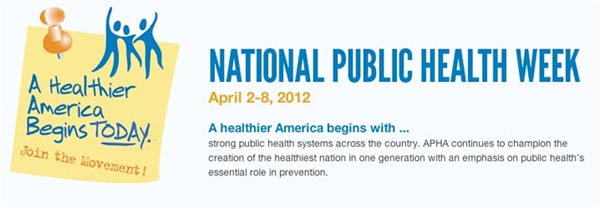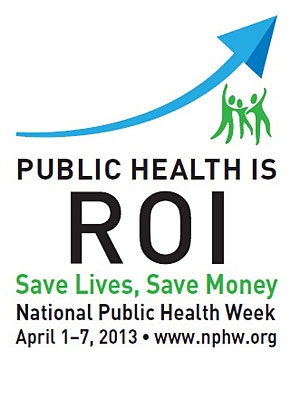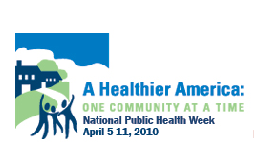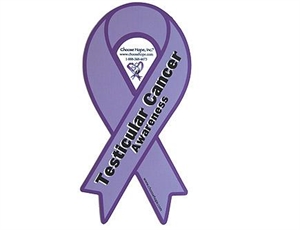National Public Health Week on April, 2024: Universal Health Care-United States?
National Public Health Week 2024. nphw_top.jpg National Public Health Week
As an Amazon Associate I earn from qualifying purchases.

Moore doesn't make documentaries, he makes propaganda.
FACTS about UHC from a Canadian doc who studies it include:
"...Another sign of transformation: Canadian doctors, long silent on the health-care system’s problems, are starting to speak up. Last August, they voted Brian Day president of their national association. A former socialist who counts Fidel Castro as a personal acquaintance, Day has nevertheless become perhaps the most vocal critic of Canadian public health care, having opened his own private surgery center as a remedy for long waiting lists and then challenged the government to shut him down. “This is a country in which dogs can get a hip replacement in under a week,” he fumed to the New York Times, “and in which humans can wait two to three years.”
And now even Canadian governments are looking to the private sector to shrink the waiting lists. Day’s clinic, for instance, handles workers’-compensation cases for employees of both public and private corporations. In British Columbia, private clinics perform roughly 80 percent of government-funded diagnostic testing. In Ontario, where fealty to socialized medicine has always been strong, the government recently hired a private firm to staff a rural hospital’s emergency room.
This privatizing trend is reaching Europe, too. Britain’s government-run health care dates back to the 1940s. Yet the Labour Party—which originally created the National Health Service and used to bristle at the suggestion of private medicine, dismissing it as “Americanization”—now openly favors privatization. Sir William Wells, a senior British health official, recently said: “The big trouble with a state monopoly is that it builds in massive inefficiencies and inward-looking culture.” Last year, the private sector provided about 5 percent of Britain’s nonemergency procedures; Labour aims to triple that percentage by 2008. The Labour government also works to voucherize certain surgeries, offering patients a choice of four providers, at least one private. And in a recent move, the government will contract out some primary care services, perhaps to American firms such as UnitedHealth Group and Kaiser Permanente.
Sweden’s government, after the completion of the latest round of privatizations, will be contracting out some 80 percent of Stockholm’s primary care and 40 percent of its total health services, including one of the city’s largest hospitals. Since the fall of Communism, Slovakia has looked to liberalize its state-run system, introducing co-payments and privatizations. And modest market reforms have begun in Germany: increasing co-pays, enhancing insurance competition, and turning state enterprises over to the private sector (within a decade, only a minority of German hospitals will remain under state control). It’s important to note that change in these countries is slow and gradual—market reforms remain controversial. But if the United States was once the exception for viewing a vibrant private sector in health care as essential, it is so no longer."
Also:
The much lauded French system raises some questions as well. From their Embassy site (ambafrance-us.org) they state that 96 percent of the population receives free or 100 percent reimbursed health care. They state the system is part of their Social Security and is funded from worker’s salaries (60 percent), “indirect taxes on alcohol and tobacco and by direct contribution paid by all revenue proportional to income, including retirement pensions and capital revenues.” They state that it appears that health insurance pays less to its doctors in France than in other European countries, but that 80 percent of the public have supplemental health insurance, typically from their employers. If they’re providing so well for the needs of the public, why is there a need for “supplemental” health insurance for the majority of the public and what about the additional cost that imposes? The site states that the poorest have free universal health care, funded by taxes. Long-term illness sufferers are to be reimbursed for their treatments. They do have private clinics, as well as public hospitals, and not-for-profit healthcare. In fact, “private medical care in France is particularly active in treating more than 50% of surgeries and more than 60% of cancer cases.”
Private insurance, which the OECD (Organisation for Economic Co-operation and Development) site said in a 2004 report, was held by 92 percent of the French, helps to cover both vision and dental care which are not well covered under the government system. “The public system is facing chronic deficits and recent cost containment policies have not proved very successful.” The government is interested in having more of the tab picked up by private insurance (Buchmueller & Couffinhall, “Private Health Insurance in France,” 2004, oecd.org).
Moore, who doesn't know how to do research, also touts Medicare as an answer:
In the US, Medicare is going bankrupt. In 1998, Medicare premiums were $43.80 and in 2008 are $96.40--up 120%. "Medigap" insurance is common because of the 20% co-pay required for service. Medicare HMOs are common because they reduce that burden without an extra charge in many cases. HOWEVER, many procedures which used to have no or a low co-pay NOW cost the full 20% for the HMO Medicare patient. ALSO the prescription coverage they tended to offer has been REDUCED in many cases to conform to the insane "donut hole" coverage of the feds. Doctors are leaving Medicare because of the low and slow pay AND because the crazy government wants to "balance" their Ponzi scheme on the backs of doctors.
"That dark cloud lurking over the shoulder of every Massachusetts physician is Medicare. If Congress does not act, doctors' payments from Medicare will be cut by about 5 percent annually, beginning next year through 2012, creating a financial hailstorm that would wreak havoc with already strained practices.
Cumulatively, the proposed cuts represent a 31 percent reduction in Medicare reimbursement. If the cuts are adjusted for practice-cost inflation, the American Medical Association says Medicare payment rates to physicians in 2013 would be less than half of what they were in 1991."
Here is a plan based on facts and what would work:
QUALITY, ACCESSIBLE, AFFORDABLE health care for all.
That means preventative care (physical with follow up). Real medication (no Medicare "donut holes" the really ill are ripped off again.) No bogus ridiculously low "caps" on needed medical procedures. No abuse of the ER. No paying for the silly with the sniffles to go to the doc for free. No more bankruptcies over medical bills. I want THIS plan that ends abuse of the taxpayer, takes the burden off employers, provides price transparency, and ends the rip-off of the US taxpayer at the hands of greedy insurance CEOs (which has been repeatedly documented).
Read the PDF, not the blurb, for the bulk of the plan. Book is searchable on Amazon.com
Cassandra Nathan's Save America, Save the World

Information about Universl Health Care?
It doesn't work anywhere it's tried.
Canadian doc who studies world health care:
"...Another sign of transformation: Canadian doctors, long silent on the health-care system’s problems, are starting to speak up. Last August, they voted Brian Day president of their national association. A former socialist who counts Fidel Castro as a personal acquaintance, Day has nevertheless become perhaps the most vocal critic of Canadian public health care, having opened his own private surgery center as a remedy for long waiting lists and then challenged the government to shut him down. “This is a country in which dogs can get a hip replacement in under a week,” he fumed to the New York Times, “and in which humans can wait two to three years.”
And now even Canadian governments are looking to the private sector to shrink the waiting lists. Day’s clinic, for instance, handles workers’-compensation cases for employees of both public and private corporations. In British Columbia, private clinics perform roughly 80 percent of government-funded diagnostic testing. In Ontario, where fealty to socialized medicine has always been strong, the government recently hired a private firm to staff a rural hospital’s emergency room.
This privatizing trend is reaching Europe, too. Britain’s government-run health care dates back to the 1940s. Yet the Labour Party—which originally created the National Health Service and used to bristle at the suggestion of private medicine, dismissing it as “Americanization”—now openly favors privatization. Sir William Wells, a senior British health official, recently said: “The big trouble with a state monopoly is that it builds in massive inefficiencies and inward-looking culture.” Last year, the private sector provided about 5 percent of Britain’s nonemergency procedures; Labour aims to triple that percentage by 2008. The Labour government also works to voucherize certain surgeries, offering patients a choice of four providers, at least one private. And in a recent move, the government will contract out some primary care services, perhaps to American firms such as UnitedHealth Group and Kaiser Permanente.
Sweden’s government, after the completion of the latest round of privatizations, will be contracting out some 80 percent of Stockholm’s primary care and 40 percent of its total health services, including one of the city’s largest hospitals. Since the fall of Communism, Slovakia has looked to liberalize its state-run system, introducing co-payments and privatizations. And modest market reforms have begun in Germany: increasing co-pays, enhancing insurance competition, and turning state enterprises over to the private sector (within a decade, only a minority of German hospitals will remain under state control). It’s important to note that change in these countries is slow and gradual—market reforms remain controversial. But if the United States was once the exception for viewing a vibrant private sector in health care as essential, it is so no longer."
The NHS, the oldest system, is in Britain:
"Staff are being laid off, and deficits are at an all time high (£1.07bn for 2005-2006)” (Hazel Blears, Labour Party Chair and Minister Without Portfolio, labourachievements.blogspot.com/2006/08/23-investment-in-nhs.html).
In the National Review Online article, Coburn & Herzlinger state “more than 20,000 Brits would not have died from cancer in the U.S.” Just recently Alex Smallwood of the BMA (British Medical Association) was quoted in the Scotsman as saying: “’Rationing is reduction in choice. Rationing has become a necessary evil. We need to formalise rationing to prevent an unregulated, widening, postcode-lottery of care. Government no longer has a choice.’” (Moss, “NHS rationing is ‘necessary evil,’ says doctors,” 26 June 2007).
Japan doesn't fare any better:
"According to Japanese legislator Takashi Yamamoto, who was just diagnosed with cancer, "abandoned cancer refugees are roaming the Japanese archipelago." Patients are told they¹ll never get better, even when treatments exist, and many are not even informed of their diagnoses. Cancer mortality rates in Japan have been steadily climbing and are now more than 250 per 100,000, while U.S. rates are now around 180 per 100,000. (Glueck, “Far East illustrates the limitations and dangers of universal health care,” 26 January 2007, jewishworldreview.com)
Sweden:
A May 2007 article the National Center for Public Policy Research ran called “Sweden’s Single-Payer Health System Provides a Warning to Other Nations” (Hogberg, nationalcenter.org) indicates that this government with good GDP ($31,600) and relatively low unemployment (5.6 percent) had a single-payer system for much of the 20th century. They covered basically all health care costs and as a result, had to ration health care, and found themselves with waiting lists for both surgeries and doctor visits. In the 1990s, there was a move toward semi-privatization which reduced those problems, but they have re-emerged. In that author’s, view, the reforms were not permitted to work as they were not full-on free market ones.
The much lauded French system raises some questions as well. From their Embassy site (ambafrance-us.org) they state that 96 percent of the population receives free or 100 percent reimbursed health care. They state the system is part of their Social Security and is funded from worker’s salaries (60 percent), “indirect taxes on alcohol and tobacco and by direct contribution paid by all revenue proportional to income, including retirement pensions and capital revenues.” They state that it appears that health insurance pays less to its doctors in France than in other European countries, but that 80 percent of the public have supplemental health insurance, typically from their employers. If they’re providing so well for the needs of the public, why is there a need for “supplemental” health insurance for the majority of the public and what about the additional cost that imposes? The site states that the poorest have free universal health care, funded by taxes. Long-term illness sufferers are to be reimbursed for their treatments. They do have private clinics, as well as public hospitals, and not-for-profit healthcare. In fact, “private medical care in France is particularly active in treating more than 50% of surgeries and more than 60% of cancer cases.”
Private insurance, which the OECD (Organisation for Economic Co-operation and Development) site said in a 2004 report, was held by 92 percent of the French, helps to cover both vision and dental care which are not well covered under the government system. “The public system is facing chronic deficits and recent cost containment policies have not proved very successful.” The government is interested in having more of the tab picked up by private insurance (Buchmueller & Couffinhall, “Private Health Insurance in France,” 2004, oecd.org).
Hillarycare has been imposed on Taxachusetts by Romney and for 6.5 million folks, this is the result:
"Massachusetts announced that spending on its health care plan would increase by $400 million in 2008, a cost expected to be borne largely by taxpayers."
Last modified: January 29. 2008 5:03AM
That article explained how CA failed at trying to put UHC into practice.
Medicare is a form of UHC:
In the US, Medicare is going bankrupt. In 1998, Medicare premiums were $43.80 and in 2008 will be $96.40--up 120%. "Medigap" insurance is common because of the 20% co-pay required for service. Medicare HMOs are common because they reduce that burden without an extra charge in many cases. HOWEVER, many procedures which used to have no or a low co-pay NOW cost the full 20% for the HMO Medicare patient. ALSO the prescription coverage they tended to offer has been REDUCED in many cases to conform to the insane "donut hole" coverage of the feds. Doctors are leaving Medicare because of the low and slow pay AND because the crazy government wants to "balance" their Ponzi scheme on the backs of doctors.
"That dark cloud lurking over the shoulder of every Massachusetts physician is Medicare. If Congress does not act, doctors' payments from Medicare will be cut by about 5 percent annually, beginning next year through 2012, creating a financial hailstorm that would wreak havoc with already strained practices.
Cumulatively, the proposed cuts represent a 31 percent reduction in Medicare reimbursement. If the cuts are adjusted for practice-cost inflation, the American Medical Association says Medicare payment rates to physicians in 2013 would be less than half of what they were in 1991."
There are ZERO "success stories" for UHC.

Does Tribeca Health Green Tea X50 actually work to help lose weight?
Supplements, such as green tea extract, are always a bad idea unless recommended by a health care professional according to the best experts in health and nutrition in the world...the US National Institute of Health. The reason is you don't know what you're getting in the product. The FDA does not require testing, advertising is often fraudulent, what's on the label is often not in the package/product, and many supplements are contaminated with various toxins. For more information about supplements, go here -->
Will green tea help you lose fat? Probably not. The truth about green tea is there are many varieties of the herb and no good scientific evidence any of them support fat loss to any significant degree. However, if you randomly surf the web you're likely to become the victim of scammers.
Here's an example of a very nice looking website about green tea. Note the excerpt:"If you are in search of natural means that will help you lose weight and improve your health, then green tea dietary supplements may be the perfect answer for you. Each time you take the pill, there’s a gleaming joy in your heart that you are doing something good for your body’s overall wellness."
Ref:
But, is that truth or just scammers who want to sell you supplements feeding you propaganda for to get your money? If you read what the experts have to say, your conclusion will have to be that classy website article is bogus and fraudulent scammers propaganda. And, in fact, that's an example of how scammers manipulate the buying public by saturating the web with false articles, phony blogs, bogus scientific white papers, and fake reviews.
Here's what the US National Institute of Health, the people your doctor listens to, has to say about green tea diets. Note the excerpt: "Insufficient evidence to rate effectiveness for weight loss.".
Ref:
Here's a fact sheet about green tea. Note the excerpt: "There are not enough reliable data to determine whether green tea can aid in weight loss"
Ref:
Here's another report. Note the excerpt: "Taking a specific green tea extract (EGCG) seems to help moderately overweight people lose weight. But green tea doesn’t help people keep the weight off."
Note the phrase "seems to".
Ref:
So, why doesn't the NIH just come right out and say green tea doesn't work for diets? Because they only say what has been demonstrated by good scientific research. Unlike the supplement sellers who will make outlandish and ridiculous claims to get your money and the credulous and naive people who believe them, the government tells the truth as science is given to know it.
It pays to be skeptical about all supplements and especially those sold for the purposes of fat loss and muscle gain. The internet search engines only know what is popular, not what is true and correct. So, if you see it at the top of the Google or Bing search results, it means nothing. On the web, you have to dig for the truth. Be skeptical, use critical thinking, and if it sounds too good to be true...well, you know the rest.
For more information go here -->
In summation, it would seem green tea is a poor choice for dieters simply because it has no appreciable effect on fat loss. High quantities of a concentrated extract may have some slight fat loss benefit but that can only be purchased as a supplement and there is still no good science to suggest efficacy in fat loss. So, if you like green tea, drink it. If you need caffeine, however, you can get that dirt cheap by buying NoDoz pills. Of course too much caffeine is not good for your body and can increase blood pressure, cause anxiety and panic attacks, and much more.
Good luck and good health!!
♠


















